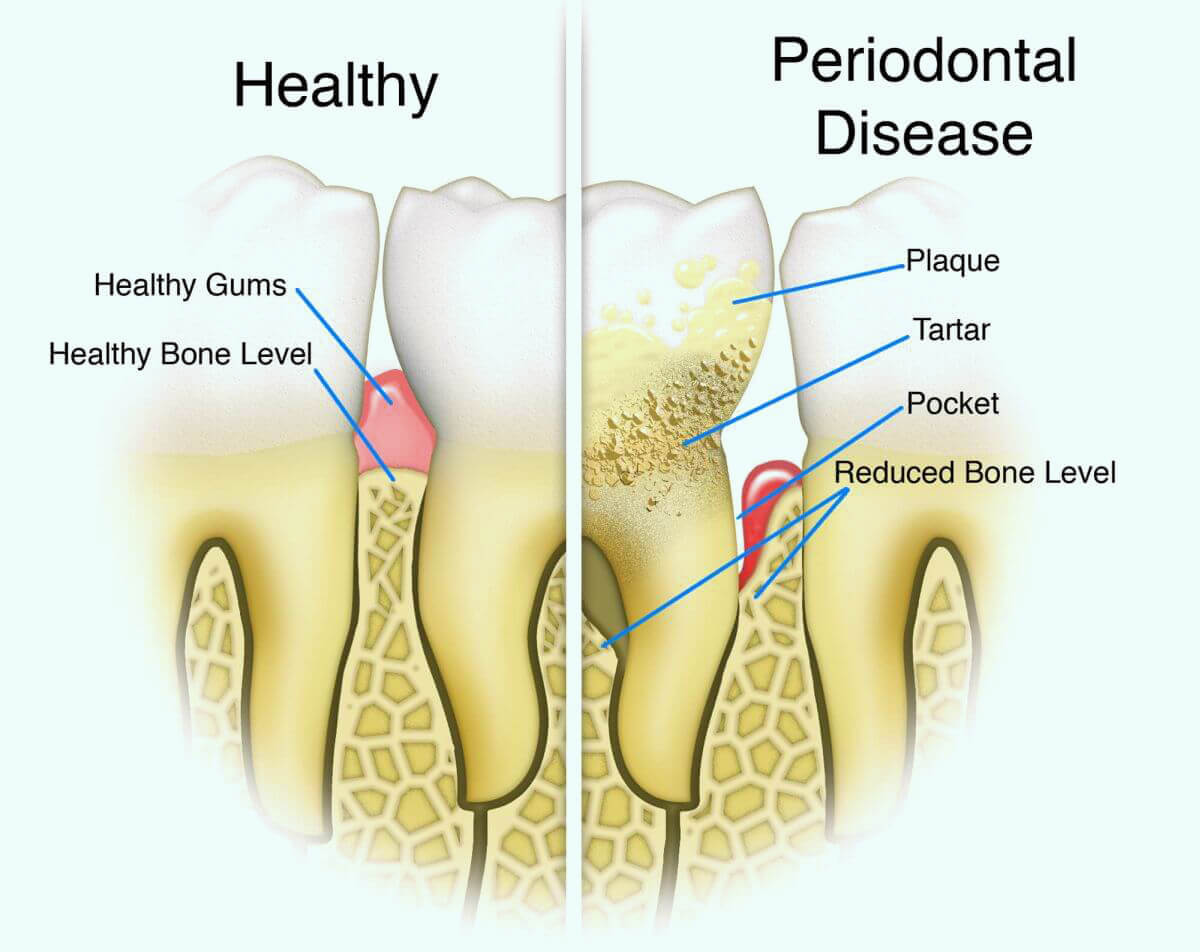People with periodontal disease have bacteria between their teeth and gums, usually hidden from view small nests.
Most of the time this serious infection is painless, but these germs can become very active and are responsible for tissue inflammation that can lead to pain, bleeding, and gum recession. If there is no pain and the bacteria remain undetected for years, you might even lose a tooth. Gingivitis means bleeding gums. Periodontal disease is more serious as it mean the bacteria are causing a bone infection. Both of these are usually painless and require specific tests to determine the severity of the infection. Unfortunately, the chances of developing gingivitis and periodontitis only increase with age, with 70 percent of adults over age 65 having at least some degree of gum disease. However, a lot can be done to prevent periodontal disease and keep teeth and gums healthy.
Daily Hygiene
The simple things you can do at home each day to clean your teeth and gums go a long way towards preventing periodontal disease. Since gingivitis and periodontitis are caused by plaque build-up, the most important steps you can take to prevent them involve cleaning your teeth each morning, night, and after meals. Start by brushing your teeth and tongue. Once every 24 hours, remove bacteria from between your teeth by flossing. If you can do this consistently, you will avoid the damaging effects of bacterial nesting, and youll enjoy fresh breath and a great-tasting mouth.
Periodontal Exams
In addition to caring for your teeth and gums at home, it is also important to see your us regularly for check-ups. We can detect gingivitis in its earliest stages and treat it before it has a chance to progress. Everyone needs occasional periodontal exams. If you smoke, or your parents or siblings have gum or periodontal disease, you are at a higher risk for problems and we should see you at least twice a year.
Treating Periodontal Disease
Please contact us if you notice any of the warning signs for periodontal disease. These include red, puffy/swollen, or bleeding gums, gum recession (lots of root showing), teeth that have become slightly more loose, and even tooth loss. If you are diagnosed with periodontal disease, treatments are available to help restore you to health; this depends on how advanced your gum disease is.
For example, gingivitis may require only a thorough cleaning and help with home care routines. Periodontal disease that has been allowed to progress may require scaling and root planing, and in some cases, surgery to prevent tooth, bone, and gum loss.
Call our professional team at Moss Vale Dental on 02 4869 3111 to schedule an appointment to learn about the ways we can help prevent and treat periodontal disease.


